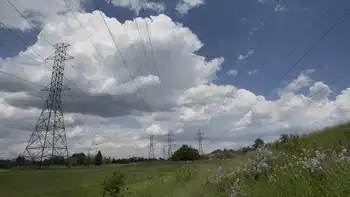Toronto to bake under heat, power suppliers worried
TORONTO, ONTARIO - As Toronto residents brace for staggering heat, experts say striking a balance between power consumption and supply will be difficult.
Ontario's Independent Electricity System Operator (IESO) says three vital nuclear units - representing eight per cent of the province's power supply - are down at the Pickering Nuclear Power Plant, which could lead to power outages in the GTA.
The IESO says if the humidity rises with the mercury, residents could be asked to limit their power intake for the second time this summer.
"We obviously pay very close attention to the weather," Terry Young, a spokesperson from IESO, told CTV News.
Toronto has already experienced one power advisory this summer when residents were asked to limit their consumption to prevent rolling black outs.
According to the IESO every three-degree increase of humidity increases power demand 450 megawatts, which is equivalent to one nuclear reactor.
Forecasters are calling for temperatures in the mid-thirties the first week of August.
Tom Adams, a spokesperson from Energy Probe, says Toronto is particularly vulnerable because there aren't enough power lines to import energy from New York or other generators.
In order to meet increased demand the province will be firing up its coal plants, which are a major contributor to poor air quality.
Wind turbines are ruled out as a reliable source of energy.
On a hot day, the city uses 26,000 megawatts and on July 30 at noon the turbines were producing only nine megawatts of energy.
But for residents who love the heat, there are plenty of outdoor activities in the GTA designed to keep you cool.
City pools are open and the new HTO Park and beach at Spadina and Queen's Quay provides ample room for catching some rays.
Related News

Electricity deal clinches $100M bitcoin mining operation in Medicine Hat
TORONTO - The City of Medicine Hat has agreed to supply electricity and lease land to a Toronto-based cryptocurrency mining company in a deal that will see $100 million in construction spending in the southern Alberta city.
The city will provide electric energy capacity of about 42 megawatts to Hut 8 Mining Corp., which will construct bitcoin mining facilities near the city's new Unit 16 power plant.
The operation is expected to be running by September and will triple the company's operating power to 60.7 megawatts, Hut 8 said.
#google#
"The signing of the electricity supply agreement and the land lease represents a key component…




